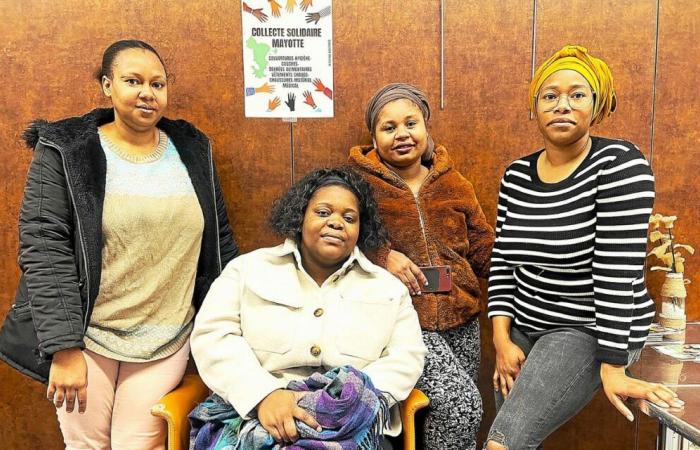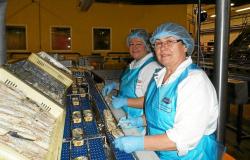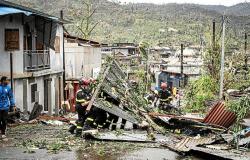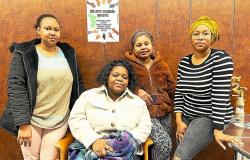
All four did not let go of their smartphones, even for a minute, this Tuesday, December 17, late in the morning, at the MPT in Penhars. They tirelessly check if they have received messages from their loved ones living in Mayotte. Three days after the passage of Cyclone Chido which devastated the French archipelago, Saturday December 14, the Mahorese community based in Quimper lives in anguish. “I just know my mother is alive but I haven’t been able to talk to her. The village where I grew up suffered a lot of damage, but I know she is alive,” breathes Djaouhari Fabi, 26 years old. The young woman, born in Mayotte, arrived in Quimper in 2018. Her parents and her big sister still live in Acoua, the village where she grew up.
“It’s horrible. We are here and there is nothing we can do”
“As soon as the cyclone passed, my sister went to knock on all the doors of the houses in the village to find out if everyone was well. It was she who reassured me about my mother by sending me a voice message, but since then, nothing more,” confides Djaouhari, who feels helpless. “It’s horrible. We are here and there is nothing we can do.” In their village, which has many permanent houses, one death and many injuries have been recorded so far. For the village of his sister-in-law, Stama Dati Issoufa, it is different. The young woman shows photos of Kawéni, a huge shantytown, on her smartphone after the cyclone. In the image, a tangle of metal sheets as far as the eye can see. “There are people under these sheets of metal,” she says, looking down.
The hospital was heavily damaged. The maternity ward is completely devastated and many other services can no longer function.
Tents set up in the hospital courtyard
Slum dwellers had been warned of the cyclone’s arrival but most stayed. “They didn’t believe it. They were afraid that it was a maneuver to expel them and destroy their habitat in their absence,” points out Stama Dati Issoufa. “My mother and my brother had only arrived two weeks ago to visit the family. They are fine. She called me this morning. But there is nothing left, she was going to get water.” A bell rings. It is the phone of Djaouhari’s cousin, Natacha Soifoudine, who receives a call from her older sister, Latufa, working at the hospital center in Mamoudzou, the capital. “The hospital was heavily damaged. The maternity ward is completely devastated and many other services can no longer function. But the wounded continue to arrive. We had to set up tents in the courtyard to accommodate them,” she explains on the phone.
The Mahoraise continues to come to work. To save fuel, she does not return home every evening and sleeps there, on mattresses on the floor. The two sisters will continue their conversation aside. Samaouya Madi-Mari, also present at the MPT in Penhars this Tuesday morning, had planned to spend the holidays in Mayotte but she canceled at the last minute. “I had to leave with my little daughter to see my mother. I told myself at the last moment: don’t go,” she says without being able to explain why. “Look! I just received a video. They reopened the Intermarché, but there is almost nothing left on the shelves! », Intervenes Stama Dati, holding out the screen of his smartphone. The four women are dismayed.





